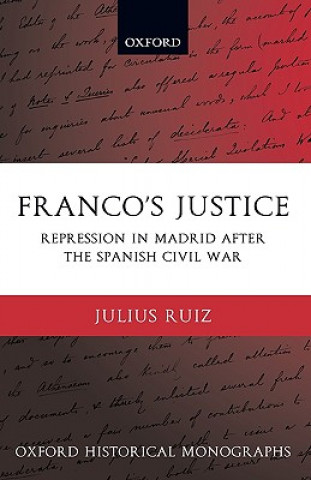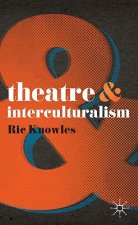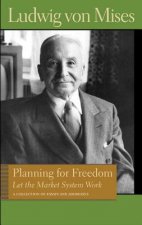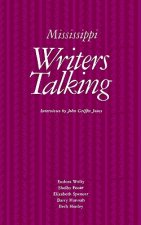
Kód: 04531595
Franco's Justice
Autor Julius Ruiz
Madrid became one of the key symbols of Republican resistance to General Franco during the Spanish Civil War following the Nationalists' failure to take the city in the winter of 1936-7. Yet despite the defiant cries of 'No pasara ... celý popis
- Jazyk:
 Angličtina
Angličtina - Väzba: Pevná
- Počet strán: 269
Nakladateľ: Oxford University Press, 2005
- Viac informácií o knihe

Mohlo by sa vám tiež páčiť
-

Let's Go: 6: Workbook
32.18 € -

Theatre and Interculturalism
16.80 € -

Planning for Freedom: Let the Market System Work
14.87 € -

Mississippi Writers Talking
49.40 € -

Busy Swimming
4.85 € -30 % -

New Way White Level Pack 1 without Words
22.87 € -

Control of Volatile Organic Compound Emissions - Conventional and Emerging Technologies
275.97 €
Darujte túto knihu ešte dnes
- Objednajte knihu a vyberte Zaslať ako darček.
- Obratom obdržíte darovací poukaz na knihu, ktorý môžete ihneď odovzdať obdarovanému.
- Knihu zašleme na adresu obdarovaného, o nič sa nestaráte.
Viac informácií o knihe Franco's Justice
Nákupom získate 787 bodov
 Anotácia knihy
Anotácia knihy
Madrid became one of the key symbols of Republican resistance to General Franco during the Spanish Civil War following the Nationalists' failure to take the city in the winter of 1936-7. Yet despite the defiant cries of 'No pasaran', they did eventually pass on 28 March 1939. This book examines the consequences in Madrid of Franco's unconditional victory in the Spanish Civil War. Using recently available archival material, this study shows how the punishment of the vanquished was based on a cruel irony - Republicans, not the military rebels of July 1936, were held responsible for the fratricidal conflict. Military tribunals handed out sentences for the crime of 'military rebellion'; mere passivity towards the Nationalists before 1939 was not only made a civil offence under the Law of Political Responsibilities but could cause dismissal from work; and freemasons and Communists, specifically blamed for the Civil War, were criminalized by decree in March 1940. However, contrary to much that has been written on the subject, the post-war Francoist repression was not exterminatory. Genocide did not take place in post-war Madrid. While a minimum of 3113 judicial executions took place between 1939 and 1944, death sentences were largely based on accusations of participation in 'blood crimes' that occured in Madrid in 1936. Moreover, and unlike most other accounts of the Francoist political violence, this book is concerned with the question of when and why mass repression came to an end. It shows that the sheer numbers of cases opened against Republican 'rebels', and the use of complex pre-war bureaucratic procedures to process them, produced a crisis that was only resolved by decisions taken by the Franco regime in 1940-1 to abandon much of the repressive system. By 1944, mass repression had come to an end.
 Parametre knihy
Parametre knihy
Zaradenie knihy Knihy po anglicky Humanities History Regional & national history
315.05 €
- Celý názov: Franco's Justice
- Podnázov: Repression in Madrid after the Spanish Civil War
- Autor: Julius Ruiz
- Jazyk:
 Angličtina
Angličtina - Väzba: Pevná
- Počet strán: 269
- EAN: 9780199281831
- ISBN: 0199281831
- ID: 04531595
- Nakladateľ: Oxford University Press
- Hmotnosť: 405 g
- Rozmery: 223 × 145 × 20 mm
- Dátum vydania: 28. July 2005
Obľúbené z iného súdka
-

Hundred Years' War on Palestine
12.14 € -23 % -

Ethnic Cleansing of Palestine
12.95 € -22 % -

History of Japan
17 € -15 % -

Ten Myths About Israel
11.63 € -19 % -

Strange Death of Europe
15.28 € -20 % -

Decline and Fall of the Roman Empire
6.06 € -18 % -

Secret History
13.66 € -21 % -

God's Playground A History of Poland
68.02 € -

Mayflower
15.58 € -23 % -

How to be a Victorian
13.76 € -12 % -

Plantagenets
16.29 € -12 % -

General's Son
20.44 € -3 % -

Iran: A Very Short Introduction
10.01 € -22 % -

Temples of Karnak
151.95 € -

Cuneiform
11.03 € -23 % -

Twenty Years A-Growing
10.01 € -22 % -

Bohemian Paris
16.59 € -17 % -

History of Witchcraft in England from 1558 to 1718
18.82 € -

China in Africa
37.04 € -

Islandman
10.01 € -22 % -

Lancaster And York
22.67 € -

Alexiad
17.61 € -20 % -

Modern France: A Very Short Introduction
11.43 € -19 % -

Inside Hitler's Greece
20.85 € -20 % -

Diana: Her True Story - In Her Own Words
11.03 € -23 % -

The Fourth Turning
19.53 € -8 % -

The Oxford History of Ancient Egypt
15.28 € -23 % -

Churchill: The Power of Words
15.38 € -20 % -

Palestine
20.24 € -20 % -

Korean History in Maps
28.03 € -9 % -

Great Gatsby (Wisehouse Classics Edition)
16.19 € -36 % -

Viking Way
45.75 € -7 % -

The Thirteenth Tribe
12.44 € -

My Promised Land
18.42 € -

Vanished Kingdoms
19.02 € -21 % -

Age Of Revolution
16.39 € -23 % -

Life and Death of Anne Boleyn
23.38 € -2 % -

Coming of the Third Reich
18.52 € -23 % -

Children of Ash and Elm
18.52 € -23 % -

Europe Between the Oceans
34.21 € -6 % -

Socialism Betrayed
19.33 € -19 % -

303 Squadron
18.52 € -23 % -

Ancient Celts, Second Edition
26.51 € -19 % -

Dancing in the Glory of Monsters
15.88 € -21 % -

Battle of Britain: Luftwaffe Blitz (Images of War)
25.60 € -1 % -

Age of Confucian Rule
35.63 € -

Beyond Band of Brothers
16.39 € -23 % -

Benjamin Franklin
18.72 € -12 % -

On China
17.20 € -20 %
Osobný odber Bratislava a 2642 dalších
Copyright ©2008-24 najlacnejsie-knihy.sk Všetky práva vyhradenéSúkromieCookies



 21 miliónov titulov
21 miliónov titulov Vrátenie do mesiaca
Vrátenie do mesiaca 02/210 210 99 (8-15.30h)
02/210 210 99 (8-15.30h)